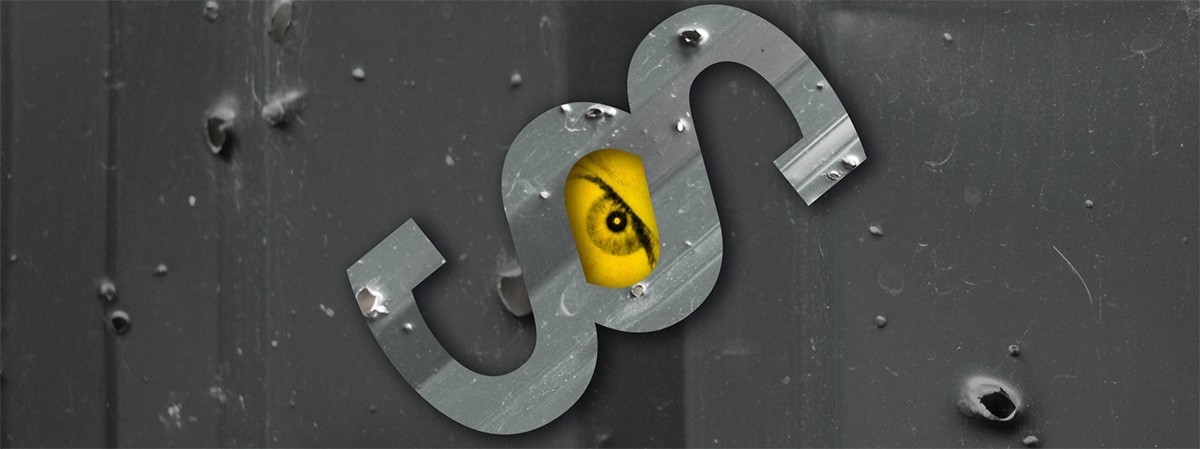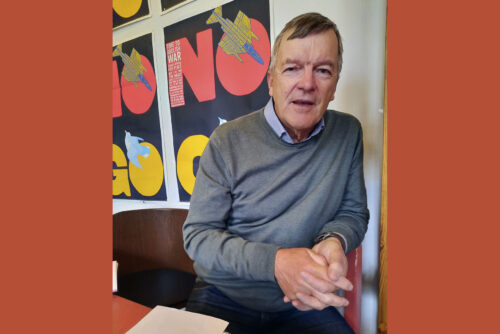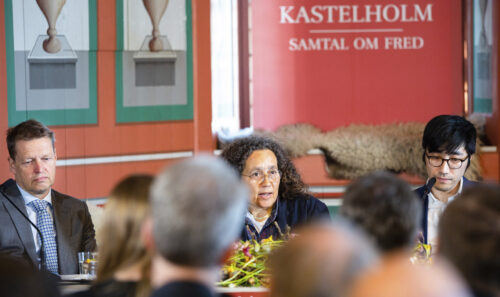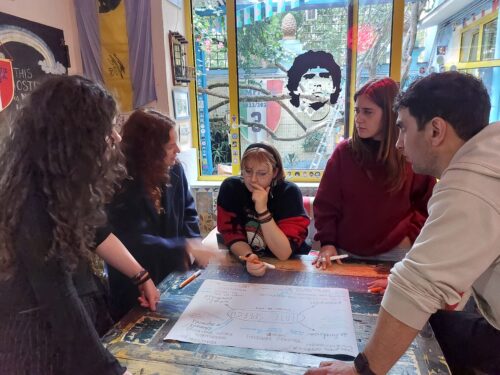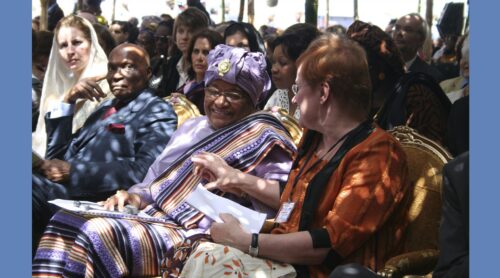On September 7th 2019 the swap between Russia and Ukraine was realized. 34 people from Ukraine have been exchanged for 35 people from Russia.
UKRAINIAN MEDIA
Radio Svoboda quotes Ukrainian philosopher Yevheniy Bystritsky: “If it was necessary to surrender Vladimir Tsemakh to Russia in order to free Oleg Sentsov, then such a swap would be justified from a moral point of view. We had to liberate him from prison while the role of Tsemakh in downing MH17 is too exaggerated”.
Alexey Arestovich, a military expert, stated to Radio Svoboda: “Implementation by Ukraine of any conditions set by Russia will definitely result in fierce resistance from Ukrainian society”. Ukrainian political scientist Alexey Yakubin pointed out that the accomplished swap means that President Zelensky “is ready to reconsider politics run by the previous authorities and is ready to reject things which do not work”.
24 TV channel publishes lists of both groups exchanged on September 7. However, the article describes all the people released by Ukraine as spies and terrorists. They categorize Valentin Rybin, a Ukrainian lawyer who worked on some cases, as “a lawyer for terrorists”. They ignore the fact that Yevheniy Mefedov was fully acquitted by the Ukrainian court of any charges of “mass disorder which resulted in numerous casualties,” continuing to describe him as guilty of numerous fatalities on May 2, 2014 in Odessa.
RBK-Ukraine quoted President Zelensky announcing intentions to establish the formal working group which Putin and Zelensky had agreed upon which would work on issues related to prisoner release. He also stated that “they would continue the process of the disengagement of both sides: at Zolotoye and Petrovskoye and then along the entire contact line”.
Apostrophe quotes the new head of the SBU Ivan Bakanov: “Ukraine as the state is demonstrating to the entire world that we are saving our citizens, following the example of the strongest democracies in the world, USA and Israel.” It is important to point out that the majority of people sent by Ukraine to Russia are also holders of Ukrainian citizenship.
The Babel online edition points out that ex-President Poroshenko also commented on the release of Ukrainians stating his personal role in the release. The article also states there are 227 Ukrainians being held captive in the areas not controlled by Kiev, according to data released by the SBU.
Komsomolskaya Pravda-Ukraine writes on the psychological state of the returnees, requesting that they be provided all not with publicity but with peace since they all suffer from the consequences of long-term imprisonment, according to some of the relatives of those released. The article quotes Igor Kotelyanets, coordinator of the Union of Relatives of Ukrainian Political Prisoners, as saying, “The state has carried out their duties towards those people who defended it”. The newspaper points out the danger of various political forces using the returnees to serve their political purposes. The article also mentions the problem of insufficient ways to provide people with an adequate level of help. The newspaper interviews Ihor Movenko, a former resident of Sebastopol, “The state doesn’t have any working mechanism to help political prisoners. Only human rights organisations help. There is neither medical nor psychological support. We were not greeted by the president and nobody shook our hands. The system is not aware of us. We are facing huge problems with housing, which is needed here and now but only those whose names are publicly known will get help”.
RUSSIAN MEDIA
On the day of the exchange Moskovsky Komsomolets published two lists of 70 people who were going to be exchanged. In another article on the same day, they quote Igor Mefyodov, the father of the Ukrainian ex-political prisoner Yevgeny Mefyodov: “I spoke to Zhenya when he was already on board the plane. I didn’t go to the airport as I didn’t know at which airport the plane would land”. Answering the question of whether he was told of the arrival time, the father responded, “I am getting all the information from the Internet. Nobody was in contact with me… was there a time when people were treated the way they should?”
RBC detailed the way the negotiations on the prisoners’ release developed pointing out that they reached their conclusion during the meeting between Macron and Putin. They describe the exchange as a positive step, quoting Andrey Kortunov, the director of the Russian Council on International Affairs, as saying, “it will contribute to establishing a favourable political background to reach agreement on settling the situation in the eastern part of Ukraine”.
In Novaya Gazeta’s “The price tags for exchange,” Andrey Lipskiyt, deputy chief editor, describes the swap as an “action in which humanism and cold-blooded political calculations merged in a bizarre “hybrid” way”. He also points out that success in the exchange of this group of captives opened up ways to ensure that the swaps will reach the phase of a “tool” as the Minsk Agreements require. Lipskiy notes a negative aspect of the entire situation: “It is no secret that each of those captured and arrested in both Russia and Ukraine had their own exchange rate, a kind of price tag to be swapped for someone with a similar price”. The journalist emphasises that “moreover, some people got captured just because they were seen as potentially profitable material for a coming exchange. Both sides were involved into these shameless calculations”.
INTERNATIONAL MEDIA
Reuters describes the swap as “carefully-negotiated rapprochement that brought Western praise and could see a thaw in relations since Moscow annexed Crimea in 2014.
CNBC quotes Otilia Dhand, senior vice president at Teneo Intelligence as saying, “The recent increase in bilateral activity suggests that some form of talks over the Donbas conflict will likely take place soon, with both sides having vested interests in a resolution. The same source also refers to Kurt Volker, special representative for Ukraine, and his opinion that “there is a long way to go before there can be any normalisation between the two countries”.
The Financial Times points out that the swap between Russia and Ukraine “has opened a potential new chapter in Moscow’s troubled relations with Kiev and European capitals but also risks a backlash that could split opinion within the EU” in referring to Vladimir Tsemakh being surrendered to Russia despite calls made from within the EU. The newspaper emphasises that “mixed relations highlight the stakes for all sides as … Vladimir Zelensky and a group of European countries try to revive relations poisoned by the annexation of Crimea”.
The BBC describes the swap as a “completed long-awaited exchange of prisoners” although it involved 69 people of those who have been captured during the years of conflict. The article also mentions the “hope to ease tension between the two neighbours”. The channel does not mention that of the 34 people released by Ukraine, only 12 are holders of Russian citizenship. One is a citizen of Moldova and the rest citizens of Ukraine.
CNN also sees the swap as a “move that could ease tensions between the two countries after Moscow’s annexation of Crimea in 2014”. CNN also clarifies the situation over the surrender of Vladimir Tsemakh to Russia. The network writes, “As a result, the prisoner swap had been delayed to allow the Dutch Public Prosecution Service time to interrogate the suspect again in the last couple of days, a letter sent to the Dutch Parliament said, which was seen by CNN”.
The Guardian describes the swap as a “major domestic triumph for Zelensky”. The newspaper continues to describe Zelensky as “a comedian with no previous political experience who came to power after promising to bring Ukrainian prisoners from Russian jails”. The newspaper also quotes President Zelensky confirming that Vladimir Tsemakh “had been questioned by the members of the joint investigative team into downing of MH17 at the request of “unnamed Western leaders”.
International Crisis Group in their analysis of the exchange describes its background as having being held “in connection with the conflict that began when Russia annexed Crimea in 2014”. The ICG finds the exchange to be the latest and most notable in a series of recent positive steps. However, the ICG points out it is too early to overstate the significance of this event: “real progress would be in ending the conflict which requires each side to implement the stalled 2014-2015 Minsk Agreements”.
Atlantic Council asked a number of high-profile contributors to their UkraineAlert to share their views on the swap. Their answers also demonstrate a clear division in the way they interpret this event.
International affairs analyst Willem Aldershoff speaks of Russia “getting the better deal”, while Michael Bociurkiw finds it a “major win for Zelensky”. Alexander Vershbow also notes that “Ukrainians can claim a greater moral victory” but the former US ambassador to Russia prefers to see it, unlike many others commentators, not as step towards peace but an opportunity “for the US and its Allies to keep the spotlight on Russian aggression and show greater support to Zelensky, including unblocking US military assistance”.

